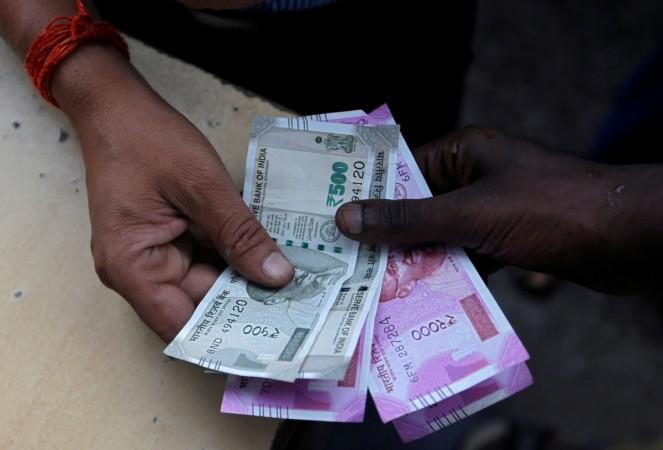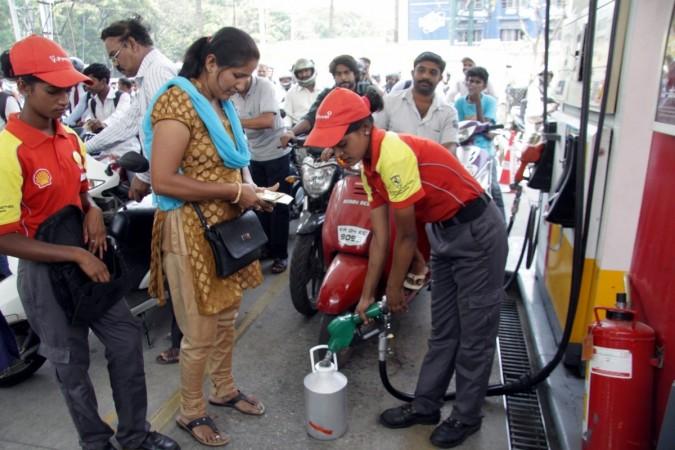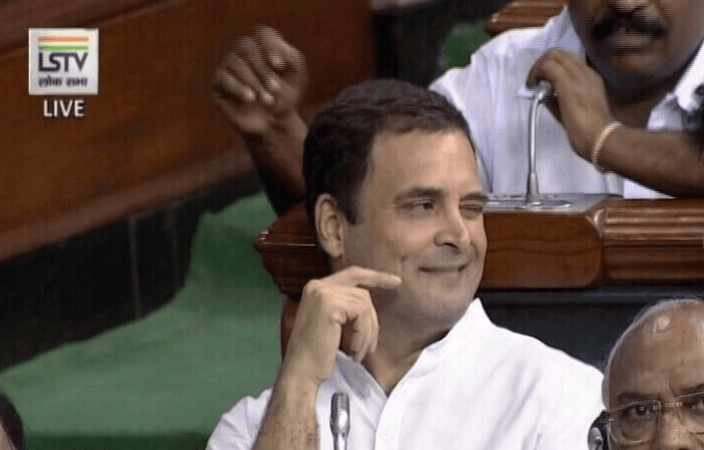
The rupee breached yet another historic low — this time of 74 — against a surging dollar on Friday, October 5, delivering a further political blow to the political ambitions of the BJP in general and Prime Minister Narendra Modi in particular ahead of the 2019 Lok Sabha elections.
The rupee-dollar comparison, one of the most visible indicators of the economy, is often at the centre debates over how well – or badly – India's economy is performing.
With the rupee taking a nosedive compared to the dollar, the Congress now has a golden opportunity on its hands to pillory the Modi government over its handling of the country's economic health.
That, compounded with how demonetisation has proved to be a failure, could well spell doom for the BJP in the upcoming elections.
The oil factor
One of the reasons the rupee is falling is believed to be the rising prices of crude oil, which is projected by some to reach $100 per barrel by the end of this year.
Petrol prices are already at record highs across India, and a further rise in crude may push them even higher. The Modi government has just recently cut excise duty on petrol, but that may not be enough to stem the rise of petrol process if crude oil prices keep increasing .
On the flip side, further cuts in petro-prices from the government's side may adversely impact oil marketing companies' (OMCs) profit margins, and may even increase losses. Either way, it is a no-win situation for Modi if the Congress can manage to make the right political noises.

The NRI factor
Now, a falling rupee may be both good and bad news for people of Indian origin (PIO) living abroad.
For PIOs and NRIs working in foreign countries, the dollars they send in are now translating into more rupee per buck.
However, for Indian students and businesses that pay in dollars, the falling rupee is a definite strain on resources, because it is costing them more and more of the Indian currency to send the same number of dollars abroad.
Now, the parents of these students and the owners of these businesses are definitely Indian, and – barring some exceptions – voters. If they decide to come out in droves and tell the BJP what's truly on their mind, it could definitely result in a setback for the saffron party in the 2019 Lok Sabha elections.
Of course, one can argue here that the relatives of NRIs receiving money in dollars in India could offset this voter base. But whether that is the case is a question only time can answer at this juncture.
The Congress factor
And that brings us to the one factor that could make or break the general elections next year for the Congress: the Congress itself!

The party, under the leadership of Rahul Gandhi and his mother Sonia before him, has failed to capitalise on several missteps by the BJP.
Even its efforts to corner the BJP over the failure of demonetisation has not gained steam. And this, at a time when the saffron party is bleeding through a thousand cuts that are loose and weird statements made by its leaders: Examples include the outrageous ones by Tripura Chief Minister Biplab Deb.
The Congress will need either for Rahul Gandhi to suddenly start dealing in really scathing attacks, or someone else to step up and lead the charge against the BJP. If neither of this happens, there should not be much of a problem for Modi and his party to return to power at the Centre in 2019.
[The author teaches at St Joseph's College (Autonomous) in Bengaluru. The views expressed are his own.]









!['Had denied Housefull franchise as they wanted me to wear a bikini': Tia Bajpai on turning down bold scripts [Exclusive]](https://data1.ibtimes.co.in/en/full/806605/had-denied-housefull-franchise-they-wanted-me-wear-bikini-tia-bajpai-turning-down-bold.png?w=220&h=138)



